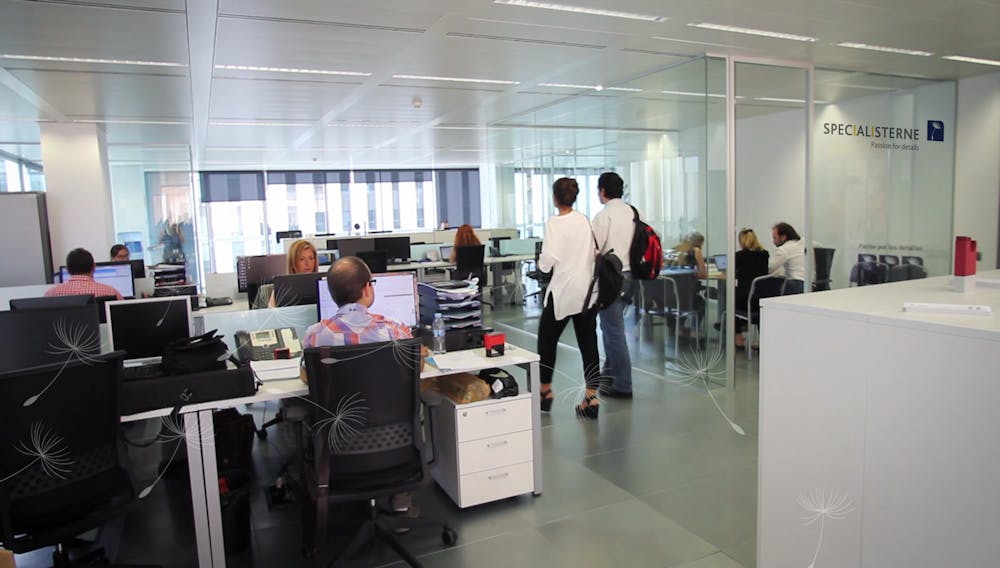
News
Loading...

News

Ensuring more young people have better pathways into digital careers has the potential to address the South-West’s chronic economic and social challenges, a new report says.
The report, “The Tech Frontier: Shaping the Future of the South-West Peninsula”, is funded by The Hg Foundation and is part of the work of the University of Exeter’s South West Social Mobility Commission.
The report says the technology workforce in the South-West set to expand by 26 per cent from 2022 to 2027, outpacing the growth rate of any other sector. The report takes a vital first step of exploring the tech skills mismatch in the region and developing recommendations to ensure the benefits of this growth are equitably distributed, particularly to young people from poorer backgrounds.
The tech industry is crucial to the South-West, with just two tech employers surpassing the entire output of the region's fishing industry. The South-West is home to nearly 18,000 tech companies supporting 170,000 employees.
However, the South-West had the lowest uptake of level 3 IT qualifications in England (5 per cent) as of 2019. The lack of available talent has been identified as the biggest barrier for tech companies in the region.
Lack of awareness and interest among young people, lack of employer engagement in schools and colleges, lack of knowledge about tech careers among teachers, and the rural geography of the region are key barriers hindering the development of the region’s tech workforce. Boosting skills and modernising methods of employment and recruitment is one way to tackle the low wages and productivity in the peninsula, experts have said.
The report warns there is currently a disconnect between the tech qualifications young people earn and the skills employers seek. It says more needs to be done to highlight the tech sector's exciting and rewarding opportunities. Sparking interest and awareness in technology is a crucial step in encouraging more young people to pursue IT-related qualifications.
The report has eight key recommendations:
Hands-on tech work experience opportunities for year 10 students
Interactive tech workshops in secondary schools, led by industry professionals
Dedicated school “Tech Days” where lessons link each subject to technology
Sixth forms should offer level 4/5 tech foundation courses, supported by local colleges and universities
All colleges need to provide level 4/5 tech foundation courses in the most in-demand tech areas
A mentorship programme pairing tech professionals with students to guide their career development and skill enhancement
A “Tech Talent Marketplace” - quarterly databases of who tech employers need and who tech educators have
Coaching for pupils on how to use LinkedIn effectively for recruitment purposes
The principal author of the report, Henry Jones, a strategy consultant at the Boston Consulting Group, said: “By addressing the critical skills gap and fostering a more inclusive tech ecosystem, the South-West peninsula can secure its position as a leading hub of innovation and opportunity. With effort and collaboration, the region can cultivate a thriving tech industry that benefits all. This will help the economy and empower the next generation with valuable skills and opportunities.”
The South West Social Mobility Commission was set up to bring about transformational change in education and employment outcomes for disadvantaged young people. Chaired by Sir Michael Barber, it brings together a dedicated and passionate group of civic leaders from across the region to drive cross-sectoral work to break down the barriers facing children and young people in the South-West peninsula. The eleven inaugural Commissioners represent a range of sectors from across the South-West peninsula who are giving their time voluntarily over the next three to five years.
Professor Lee Elliot Major, from the University of Exeter, who leads the Commission, said: “Developing digital-related qualifications that match the needs of employers at a regional level and increasing their uptake amongst students has real potential to address the South-West’s business and social mobility challenges.”
Dr Anne-Marie Sim, from the South-West Social Mobility Commission and the University of Exeter, said: “Lower numbers of young people in the region go on to university compared to other parts of the UK. Work available to those who stay in the South-West is often unskilled and lower paid. Increasing the uptake of technical qualifications has the potential to improve social mobility for those from poorer backgrounds and offer better pay and career progression for the less privileged. This important analysis will help us develop a plan to help start this process.”
James Turner, CEO at The Hg Foundation, said: “We hope this report will be a catalyst for a collective effort to open up the world of tech to young people in the South-West. We want the future tech workforce to be as diverse, vibrant and inclusive as the world it aims to serve.”
About the Hg Foundation:
The Hg Foundation’s vision is that the tech workforce of the future harnesses the talents of all, regardless of background. It does this by supporting education and employment-based programmes across the UK, USA and Europe where it can demonstrate measurable, long-term and scalable impact and make a difference to those that need it most. To date it has committed $25m to programmes that will reach over 50,000 young people and adults from under-represented backgrounds. The Hg Foundation is registered Charity no. 1189216.
Find out more at https://www.thehgfoundation.com/